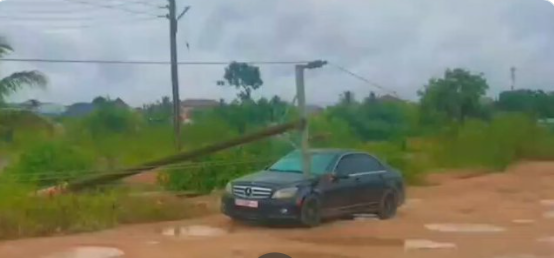-
ACEP warning: Benjamin Boakye, Executive Director of Africa Centre for Energy Policy, cautioned Ghanaians to expect more power cuts due to a persistent gas shortage for power plants.
-
Political interference: He alleged that politicians are mismanaging gas purchases and diverting funds meant for stable electricity supply.
-
Short vs. long-term fixes: Buying fuel may temporarily ease the problem, but Boakye stressed that Ghana needs sustainable, well-structured solutions.
-
Public frustration: Recent outages have angered citizens and businesses, with the opposition NDC and civil society demanding a formal load-shedding timetable.
-
ECG’s position: The Electricity Company of Ghana dismissed the need for a schedule, blaming outages on operational challenges, including pressure on transformers from rising demand.
-
Peak blackout hours: Communities may experience cuts mainly between 7 p.m. and 11 p.m.
-
Reassurance: ECG says it is working to resolve the technical issues and restore reliable supply nationwide.
The public has been warned by Benjamin Boakye, the Executive Director of the Africa Centre for Energy Policy (ACEP), to brace themselves for additional power disruptions in the near future. Boakye attributed this prognosis primarily to a continuous shortage of gas for power plants.
He voiced worry that politicians were controlling the purchase of gas for thermal plants and claimed that funds meant to guarantee a consistent supply of electricity were being embezzled.
Boakye stressed that although buying fuel for electricity production was a short-term solution the government might take, it was not a long-term solution. He emphasized that the energy situation needs to be resolved in a more dependable and organized manner.
Ghana’s recent spate of power outages has caused a great deal of unhappiness among people and companies, leading the opposition National Democratic Congress (NDC) and civil society organizations to demand the establishment of a load-shedding schedule.
The Ghanaian electricity company, or ECG, has disagreed that such a schedule is necessary.
Rather, the ECG has linked the outages to operational issues, including the stress that rising demand has placed on distribution transformers. According to the firm, communities impacted by these issues can encounter blackouts between 7 and 11 p.m., which is considered peak load hours.
The ECG has reassured the public that efforts are being made to fix the underlying problems and restore a steady energy supply across the nation, even as it acknowledges the inconvenience these disruptions have caused.



